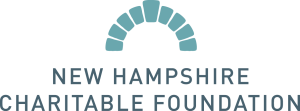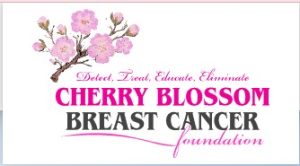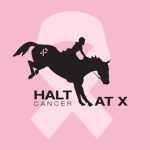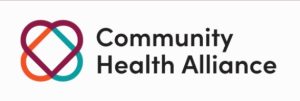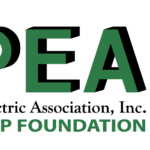Reel Healing – Martha Neubert
We’re closing out July with our Reel Healing feature. Each month, CfR will highlight a health and wellness volunteer that serves one of our many programs including, psychosocial facilitators, medical facilitators, nutritionists and more. Meet Martha Neubert, a Mental Health Professional, who has served many CfR retreats. Read more below about her role at a CfR retreat and how it provides “reel” healing for breast cancer survivors and thrivers.
Tell us a little about yourself and how you became involved with Casting for Recovery.
Currently, I am a semi-retired Oncology Social Worker after a 28 year career working at the University of Rochester Medical Center in both Oncology and Intensive Care. Before working in medical social work, I was a child and family therapist and social worker at a comprehensive mental health treatment center for children and families in the Rochester area. Prior to coming to Rochester in 1978, my career had primarily been in adult psychiatric treatment settings.
I learned about Casting For Recovery in 2015 while I was attending a Taylor Construction reception at the Rochester Jazz Festival. At that time I was working as an Oncology Social Worker in the Comprehensive Breast Care Clinic at the University of Rochester Medical Center’s Pluta Cancer Center. I started talking with Steve Olufsen at the reception and learned he was an accomplished angler who was interested in starting an upstate NY chapter of a fly fishing retreat for breast cancer survivors under the direction of an organization called Casting For Recovery. Steve shared that he would often see the display booths for CfR at various fly fishing events he attended. He was intrigued and didn’t like the fact that there wasn’t a retreat available for women in the upstate/western NY area. His mother was also a nurse at another local hospital and was interested in helping Steve make this happen. As a person who loves the outdoors and had fished in various settings as a child and adolescent, (but I have never learned to fly fish), I thought this sounded like a fun opportunity. I told Steve to please contact me when he gets his CfR retreat organized as I would be very interested in volunteering and/or helping him with recruiting breast cancer patients. This was the beginning of a wonderful new opportunity for providing support to breast cancer patients!
As a mental health professional volunteer at CfR retreats, why do you believe the mental health component at the retreat is so beneficial and/or necessary?
The Psychosocial support and mental health component of the Casting For Recovery retreat is an essential ingredient to the retreats’ success due to the emotional vulnerability one experiences in being a breast cancer survivor. Even though the participants are there to learn about fly fishing their shared experience is their breast cancer. Once they begin to connect and relate some of what they have endured and how it has impacted them, they can easily relive the trauma and feel emotionally vulnerable. Knowing there are experienced supportive volunteers available to guide them, empathize with them, and provide helpful support and resources to encourage them to manage their feelings in productive ways, is crucial to the success of the weekend group experience.
What sort of mental health topics do you find participants ask most often about during the retreat?
Anxiety and depression, coping with the emotional fallout of diagnosis and treatment, and fears of recurrence are some of the most common concerns women bring with them to our CfR retreats. During our medical and evening group sessions we also frequently uncover shared concerns, questions, and frustrations regarding treatment and surgical interventions and Oncology / radiology follow up. These discussions also integrate with sharing about strategies for coping with fears of recurrence. The mixture of women with metastatic cancer and women with non metastatic disease can be beneficial as well as awkward and a trigger for some early stage breast cancer patients. If handled carefully this also can lead to very productive discussions and helpful connections and conversations.
What are some of the most transformative things based around mental health that you have witnessed with retreat participants – as a group and/or individually?
The combination of teaching the participants (with humility and humor) how to fly fish and relating the physical challenges and mindfulness benefits of fly fishing to their shared process with breast cancer produces a supportive and healing environment through which the participants can feel safe to share anxieties and feelings they may never have shared with other survivors or even their families and friends. I have witnessed 3 women of very different backgrounds who bonded with their humor around their anxiety, anticipation, and excitement about the retreat while carpooling. They arrived with an energy and openness that was infectious and set a stage of openness and laughter that created intense sharing amongst most of the participants with each other throughout their weekend group interactions. Quite often I have watched individuals open up about their struggles as well as their successes with their survivorship in a way that gives another person permission to open up and reach out as well with their need for help. This year in particular we had a Participant who had never shared that she deals with paralyzing post traumatic stress anxiety every morning and has never told anyone about it before. The supportive and empathetic response she received from other members of the group was transformative and her first step to seeking ongoing help with her PTSD.
On the whole, why do you refer some of your patients/clients to CfR retreats? Why do you think the retreats are beneficial to women who have experienced breast cancer?
Observing the entire retreat process unfold throughout the few days we are together; witnessing: the emotional bonding and release, the enjoyment and gratitude the participants express during their final morning meditation, during their fishing time and their final reflections during the presentation of their certificates are all the healing experiences and reasons I return each year and encourage other people I know and work with in groups at the Breast Cancer Coalition in Rochester to apply to the Upstate NY CfR retreat.





